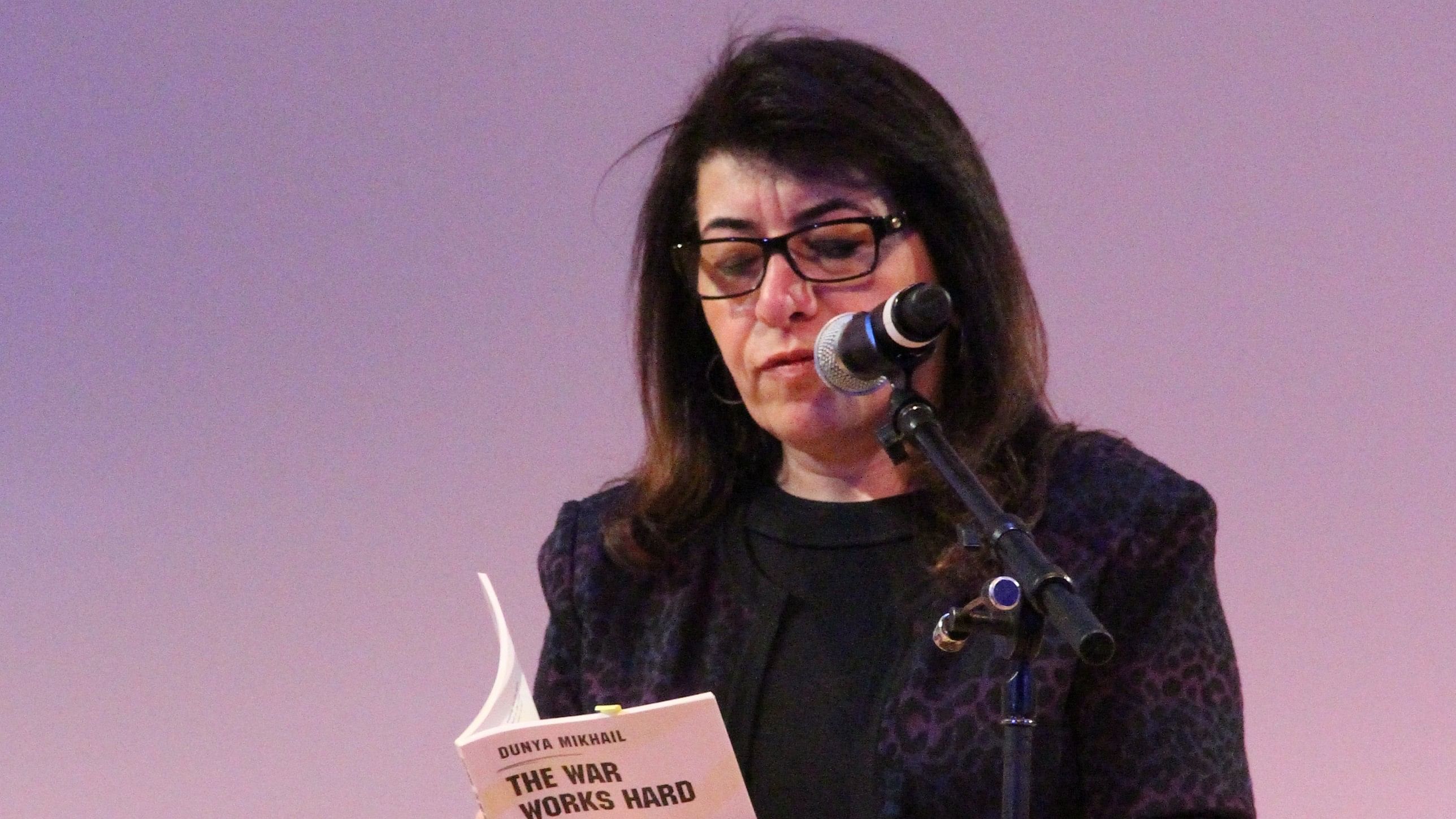
Dunya Mikhail reading from her book.
Credit: Wikimedia Commons
“I mean, why do we even need armed forces? I don’t think armies should even exist,” said a friend’s sister decades ago. Behind these words was the condescending and ill-informed tone of someone whose idea of idealism is sanitised and utterly flower-child. Meek and ill-informed that I was then, I am sure I did not rebuke her strongly enough. But those words have stayed with me.
I am a proud child of the Armed Forces. I have family members and friends from all branches of the Indian Armed Forces. I celebrate my Air Force upbringing, admire the tradition of sacrifice and stoicism that is so often on display when one meets people from the forces, and enjoy listening to some of the hair-raising and humorous tales of bravery from these raconteurs.
Some of the first war poems I ever read were, The Charge of the Light Brigade by Alfred, Lord Tennyson: “Cannon to right of them,/Cannon to left of them,/Cannon in front of them (…)” and Anthem for Doomed Youth by Wilfred Owen, the father of war poetry. The Anthem starts with the immortal line, “What passing-bells for these who die as cattle? — Only the monstrous anger of the guns. Only the stuttering rifles’ rapid rattle (…)” Wilfred Owen died at 25, killed in battle.
War and poetry have always gone together, two sides of the same zeitgeist. Despite stating that poets shouldn’t speak during times of war (On Being Asked for a War Poem), William Butler Yeats wrote his iconic Easter 1916 with the immortal refrain, “A terrible beauty is born.”
Other poets have done, too, because war hasn’t ended: it has only shifted its geographical location. As Wisława Szymborska says in her poem The End and the Beginning, “Photogenic it’s not, /and takes years. /All the cameras have left/for another war.” In Carol Ann Duffy’s War Photographer, the poet writes, “A hundred agonies in black-and-white/from which the editor will pick our five or six/for Sunday’s supplement.”
We are often removed from war when not directly affected by it. One of those poems that left an indelible mark on me is the sarcastic The War Works Hard by Dunya Mikhail. The poem ‘praises’ war, saying it “summons rain/from the eyes of mothers (…)/It inspires tyrants/to deliver long speeches/awards medals to generals/and themes to poets/it contributes to the industry/of artificial limbs (…)” and ends with, “It works with unparalleled diligence!/Yet no one gives it/a word of praise.”
In a powerful exploration of the bombs that the USA dropped on Hiroshima, Japan, Ajneya writes, “(...)A sun conjured by men converted men to air, to nothing;/ White shadows signed on the black rock give back/Man’s witness to himself.”
While the causes of war haven’t changed; power, wealth, resources, short-sightedness, a version of history — the nature of war has undergone tremendous change. War is no longer fought in the trenches. It is also automated, firing from thousands of kilometres away. I nodded in agreement as I read Ode to a Drone by Amit Majumdar, where he cuttingly calls the operator, “fool of God, savage/idiot savant/sucking your benumbed/trigger-finger/gamer’s thumb.”
While not a war poem, I found myself drawn to Carl Sandburg’s Choose: “The single clenched fist lifted and ready,/Or the open asking hand held out and waiting. Choose:/ For we meet by one or the other.”
Are our choices this simple? To defend or surrender? To give or accept? What of those who do not choose war but still go through the ravages of actions not dictated by them? There is no easy answer.
But I have one for the girl who asked me that question those decades ago. I’d tell her that she talks this big talk because of men and women protecting her country, her liberty, and the right to speak — no matter how foolish.
World in Verse is a monthly column on the best of new (and old) poetry.
The writer is a poet, teacher, voice actor and speaker. She has published two collections of poetry. Send your thoughts to her at bookofpoetry@gmail.com